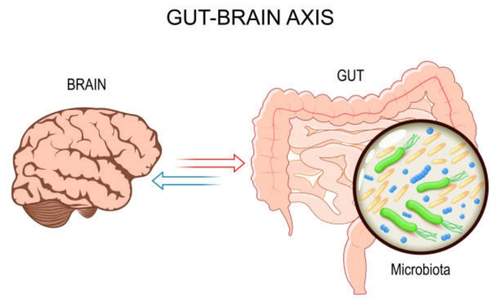Have you ever experienced butterflies in your stomach when you’re nervous or a gut-wrenching feeling during stress? That’s not just coincidence—it’s the gut and brain communicating! The fascinating field of gastroenterology dives deep into this relationship, known as the gut-brain connection, and how it shapes your physical and mental well-being. Let’s explore the science behind this connection and why it’s so vital to your health.
What Is the Gut-Brain Connection?
The gut-brain connection refers to the intricate communication network between your digestive system (gut) and brain. Gastroenterologists have uncovered that this two-way relationship impacts more than just digestion; it influences mood, immunity, and even how you handle stress. Essentially, your gut and brain are in constant conversation through nerves, hormones, and your gut’s microbiome.
The Role of Gastroenterology in Understanding Gut-Brain Health
Gastroenterology, the medical field focusing on the digestive system and its disorders, plays a critical role in understanding how the gut-brain connection works. By studying conditions like irritable bowel syndrome (IBS) and inflammatory bowel disease (IBD), gastroenterologists are uncovering how gut health influences mental health—and vice versa. This groundbreaking research helps shape holistic approaches to treatment.
The Gut as Your Second Brain
Your gut is often called your “second brain” because of its enteric nervous system (ENS), a complex network of neurons lining your digestive tract. The ENS operates semi-independently but constantly communicates with your central nervous system. This discovery has been a game-changer in gastroenterology, revealing that the gut’s role extends far beyond digestion.
How Do the Gut and Brain Communicate?
Gastroenterologists have identified key communication pathways between the gut and brain:
- The Vagus Nerve
The vagus nerve is like a superhighway connecting your gut and brain. It transmits information about gut health, influencing everything from mood to heart rate. - Neurotransmitters Produced in the Gut
Your gut produces serotonin, dopamine, and other neurotransmitters essential for regulating mood. Remarkably, about 90% of serotonin—often called the “happiness hormone”—is made in the gut, a fact that has transformed treatments in gastroenterology.
Why Gut Health Impacts Mental Health
An imbalance in your gut microbiome—called dysbiosis—can lead to poor digestion and mental health challenges like anxiety or depression. Gastroenterology research has shown that maintaining a healthy gut microbiome isn’t just about preventing stomach aches; it’s also key to keeping your mind in top shape.
Signs Your Gut-Brain Connection Needs Attention
If you’re experiencing any of these symptoms, the issue may lie in your gut-brain connection:Explore how gastroenterology reveals the link between gut health and mental well-being. Learn simple tips for a healthier gut-brain connection.
- Frequent bloating or stomach discomfort
- Persistent fatigue or low energy
- Mood swings, anxiety, or depression
- Difficulty concentrating or “brain fog”
These are clear signals that consulting a gastroenterologist might be a good idea.
How Gastroenterology Helps Improve Gut-Brain Health
Modern gastroenterology offers innovative approaches to improve the gut-brain connection, including:
- Probiotics and Psychobiotics
Probiotics are gut-friendly bacteria that restore balance in your gut microbiome. Psychobiotics, a new area of research, focus specifically on improving mental health through probiotics. - Dietary Recommendations
Gastroenterologists often recommend fiber-rich diets and prebiotic foods to support gut health and enhance the gut-brain link. - Stress Management Guidance
Stress has a profound impact on gut health. Incorporating relaxation techniques can help maintain a healthy gut-brain axis.
Tips to Strengthen the Gut-Brain Connection
- Optimize Your Diet
Incorporate fermented foods (like yogurt and kimchi) and fiber-rich vegetables to feed your gut bacteria. A gastroenterologist can guide you on the best foods for your gut health. - Stay Active
Exercise promotes a healthy microbiome and reduces stress, which benefits the gut-brain connection. - Practice Mindfulness
Activities like meditation and yoga can help manage stress and improve overall digestive health.
The Future of Gut-Brain Research in Gastroenterology
As the field of gastroenterology evolves, exciting new treatments are emerging. From personalized gut microbiome therapies to fecal microbiota transplants (FMT), the future holds immense promise for improving gut-brain health.
Conclusion: Why Gut-Brain Health Matters
The gut-brain connection isn’t just a buzzword—it’s a revolutionary concept shaping the future of healthcare, especially within gastroenterology. By paying attention to this connection, you can enhance your digestion, mood, and overall quality of life. Remember, your gut and brain are partners in health, so take care of both!
FAQs
- What is the role of gastroenterology in gut-brain health?
Gastroenterology helps diagnose and treat conditions that affect the gut-brain connection, such as IBS and IBD, using a holistic approach. - Can improving gut health improve mental health?
Yes, studies in gastroenterology show that a healthy gut microbiome can significantly reduce symptoms of anxiety and depression. - What foods improve the gut-brain connection?
Fermented foods, fiber-rich vegetables, and probiotics are great for boosting gut health, as recommended by gastroenterologists. - What are psychobiotics?
Psychobiotics are specific probiotics aimed at improving mental health by enhancing the gut-brain axis. - When should I see a gastroenterologist?
If you experience ongoing digestive issues, fatigue, or mood problems, a consultation with a gastroenterologist is a smart step.

